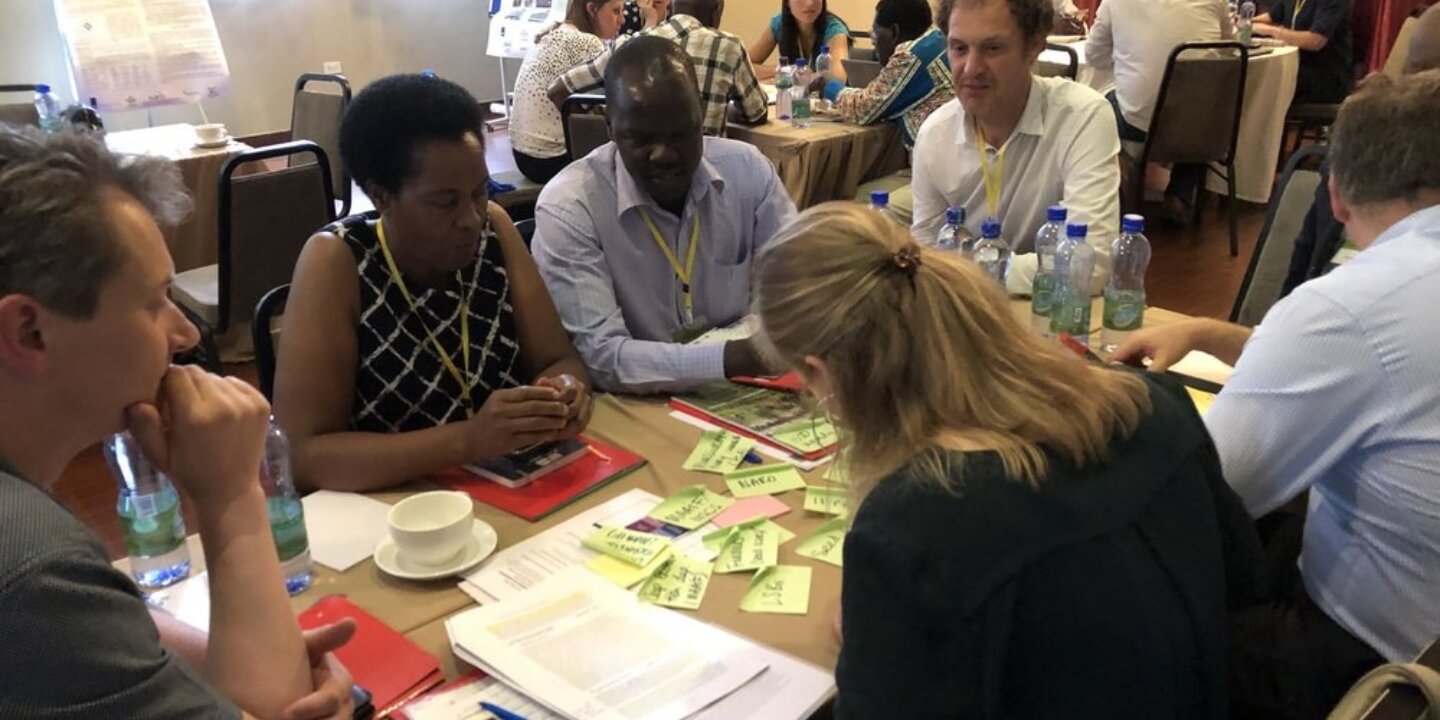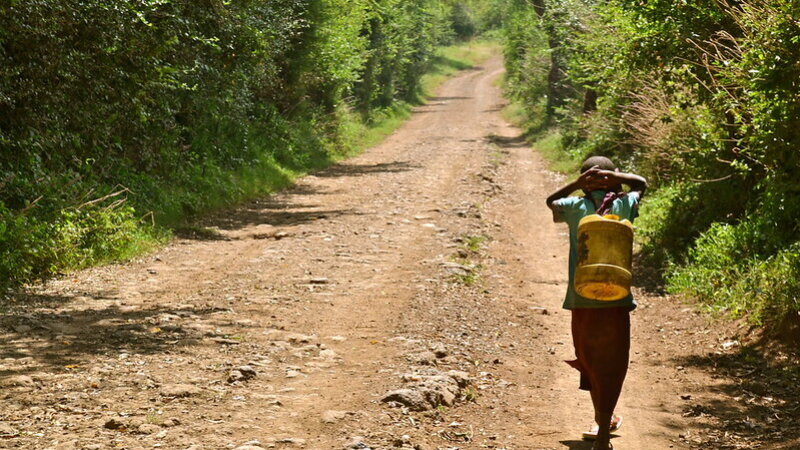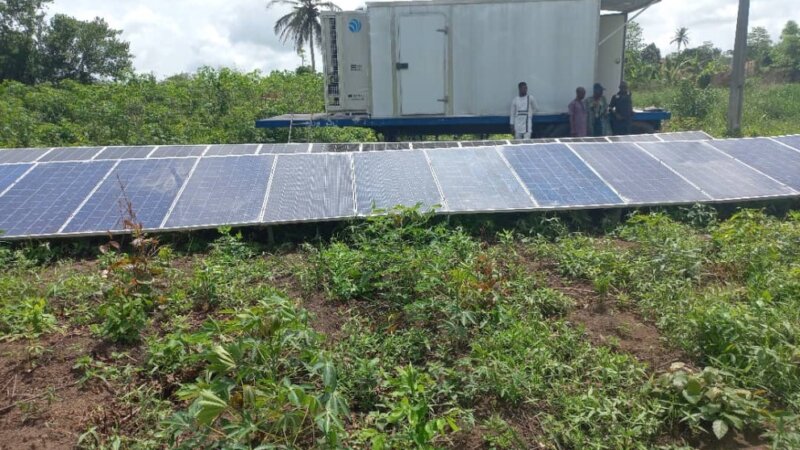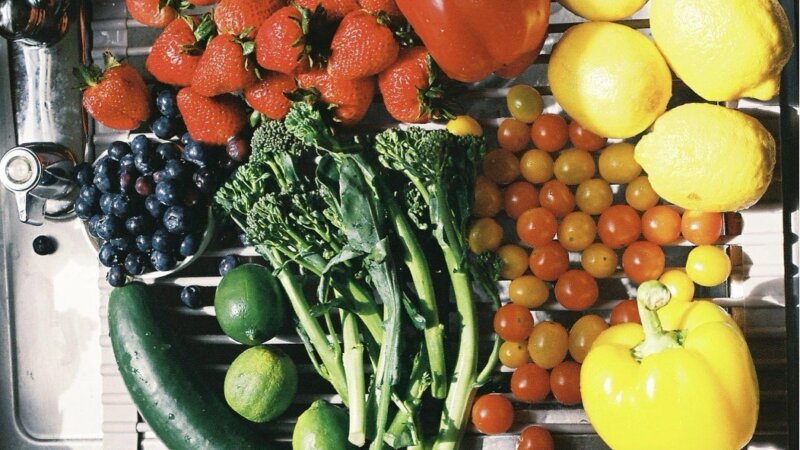In conversation with Dr. Monika Brasser on the NL-CGIAR Research Programme

During a conversation with Dr. Monika Brasser, policy officer at NWO-WOTRO, SeedNL talked about the NL-CGIAR Research Programme and specifically the Call on Seed System Development, which funded 9 international projects. Monika has been working at NWO-WOTRO since 2015 where she coordinates different international calls for proposals on research topics ranging from food security to water governance and sustainable societal transformations. She gave the following insights on this research program.
Could you tell me more about the NL-CGIAR Research Programme and the call on Seed Systems Development Monika?
Seed Systems Development (SSD) is a research funding instrument within a larger programme, the NL-CGIAR Research Programme, which is part of the strategic partnership between the Government of the Netherlands and CGIAR. Within this partnership programme we had three different instruments: the Senior Experts programme, a Public-Private-Partnership expert and the research call focusing on seed system development. In this call we funded 9 research and innovation projects, each with a budget of around 1 mio Euro.
Together with our partners, we develop research programs that stimulate innovative research in emerging economies and developing countries. To increase the impact of research, at NWO-WOTRO, we support the sharing of knowledge and the application of research results in policy and practice. We encourage our grantees to engage with local knowledge institutions and societal actors from the start of the projects. We also aim for equitable research partnerships that are developed through co-creation processes.
We support uptake and communication of research results by bringing the (results of) individual projects together through various activities like joint publications, conferences and synthesis studies of the overarching programme results.
Most of the calls we run at NWO-WOTRO include not only scientists but also other relevant stakeholders from within and outside the scientific community. The consortia that work together in the SSD projects include Dutch researchers, CGIAR researchers as well as public and private partners, such as (local) governments, NGO’s, and private (seed) companies.
What has been the focus of the SSD call?
The Seed Systems Development call funded joint research projects on ‘Enabling and Scaling Genetic Improvement and Propagation Materials' with the aim to get improved seed and animal seed stock of good quality from breeders to smallholder and family farms in Low- and Middle-Income Countries (LMICs). It tackles a knowledge gap within CGIAR by employing a system approach to better understand access, production and development of improved genetic varieties.
Each of the 9 funded projects has done this in a different way and in a different region. We have e.g. one project that studies vegetable seed systems in Vietnam, another one that focuses on business opportunities for women around chicken value chains in East Africa, and another one that studies production and uptake of improved groundnut varieties in Ghana and Mali, to mention just three of the nine.
While we see very different case studies and regional spread, all of the projects work from a system perspective, in co-creation with local stakeholders, public and private partners.”
What are the main objectives of the SSD programme?
The programme had four main objectives:
- To gain insights into how to increase the contribution of high-quality seed (i.e. seed and propagation materials for crops, livestock, and fish) to improve smallholder farmers’ food and income security;
- Identify and test how to contribute to improving availability and access of high-quality ‘seed’ for smallholder and family farms, especially faster and on a larger scale than in current practice;
- Identify and test how to make value chains for private and public seed and animal seed stock more efficient, sustainable, and anchored in a supportive enabling environment.
- Strengthen cooperation among CGIAR researchers affiliated to CRPs (CGIAR Research Programs) and/or Platforms, Dutch researchers, and relevant (local) public and private partners.”
Each of the 9 projects addresses one or more of the first three objectives, and all of them contribute to number 4, strengthening the cooperation between CGIAR and Dutch knowledge institutes.
What is the specific role and added value of Dutch partners in the SSD projects?
“The program was developed, because the Dutch government wanted to invest in an area that had been identified as understudied within CGIAR, and in general, really. There is a long tradition in developing improved, high-quality, resilient seed, which is of course very much needed, especially in the face of climate change. In the SSD programme, however, the focus is on access to those improved varieties and their contribution to food and nutrition security. For this, we asked the funded projects to employ a food system perspective. Using a system perspective as starting point of FNS research is something that has become more common, in the Netherlands and elsewhere, and we can see that this is a very useful way to look at the, very complex, issues we are trying to tackle.
Another very important aspect of this programme is to bring together stakeholders from knowledge organisations, public institutions, private partners, and civil society as we believe that only by engaging all relevant actors from the development of the project, can we create sustainable, scalable solutions. In each of the 9 project consortia, different types of stakeholders are involved.
What has been your biggest success so far?
All 9 projects have their own approach and their own successes, which is great, but we also really wanted to get some insights into the overall, programme level results and to see if there are any overarching outcomes that can be identified from this specific selection of case studies. This is why we commissioned the synthesis study.
There have been some interesting insights from this study, e.g. about the role of the public sector in food systems transformation. Public institutions are very important players because they have the power to create, and monitor, the right conditions that ensure outcomes in terms of food security, livelihoods, and ecosystems. The best results in the long run can be expected in a context where there is a healthy collaboration between public sector and other food system actors.
What would you have done differently in retrospect if you could start all over again?
“We are happy with the projects and the results, so I could not tell you what we would have done differently. However, the implementation of the projects happened partially during the lockdown and that made it challenging to stimulate collaboration between the different projects, e.g. a lot of meetings had to be held online. We learned that we need to allow for enough flexibility in the program, e.g. when fieldwork had to be delayed or done differently. But in general, we are very content with how everything has turned out. We currently have an external evaluation of the programme going on, so we are expecting some more recommendations from there.
What advice would you give to other seed sector project implementers?
“We believe that it is important to look at the bigger picture. People are often so deeply focused on their own projects, while other projects’ insights could be complementary. We are all working on global problems and therefore, we really need to find solutions together. Working with a systems approach is valuable here.
Coming back to our synthesis study, by conducting this overarching analysis we were able to zoom out and identify common themes that are equally relevant in different contexts. ”
For you personally, what are some of the reasons that you enjoy working in the seed sector?
“As a research funder and not an expert in the area, it always takes some time to familiarize yourself with a new research field. What I like about seed systems research is that everyone is really driven. There is also a growing sense of urgency and understanding of the importance of finding sustainable, scalable solutions. I was also impressed by the dedication, professionalism, and knowledge of the people we are working with, in our advisory committees and working groups but also the project consortia themselves, that have done so much excellent work, under difficult circumstances. It is exciting to see innovations emerge that have a direct impact on concrete and pressing problems.
This post was first published by SeedNL
Author






